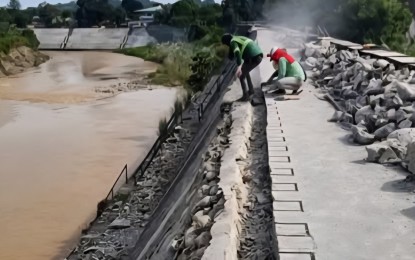MANILA – Government system reforms and strengthening of institutions are better options than calling for the resignation of elected officials, according to a statement.
“Simply changing the people in power will not achieve lasting improvement in the country’s governance,” the statement said.
Instead, it cited the need to “reform our systems, strengthen institutions and make our democracy work.”
These can be achieved through instituting proposed measures such as the anti-dynasty law, changes to the bank secrecy laws, and the Freedom of Information.
The statement explained that “people are demanding transparency, accountability and justice” amid the investigation into corruption in the government’s flood control projects.
Thus, it raised the need for the passage of a proposed measure that would give the Independent Commission for Infrastructure a legislated mandate to investigate the misuse of government funds used for flood control and other infrastructure projects.
It also called for legislators to “commit to a national budget that truly reflects our national priorities, includes only well-conceived needs-based priority infrastructure projects and rules-based social programs, and specifically exclude social programs where availment of services is dependent on patronage and political intervention.”
“We also call for the convening of a multi-sectoral group of distinguished experts to formulate an improved system for prioritizing, planning, funding and implementing public infrastructure projects based on principles of sound planning, transparency, fair bidding and citizen monitoring.”
These moves “are immediate measures that need to be put in place for meaningful reforms that the country needs.”
Earlier, the idea of a snap election covering both the executive and legislative branches was floated, suggesting it would give the public a chance to start fresh following recent controversies on corruption and misuse of public funds.






